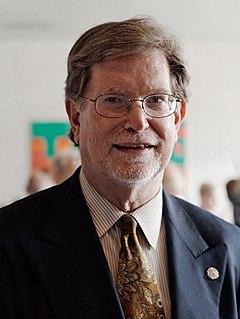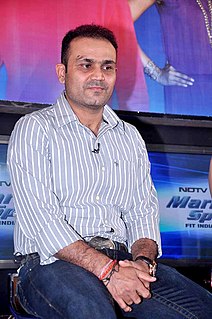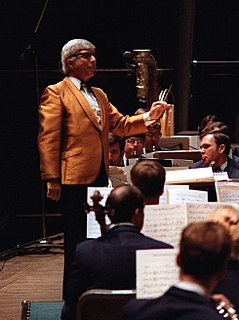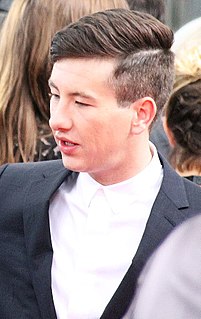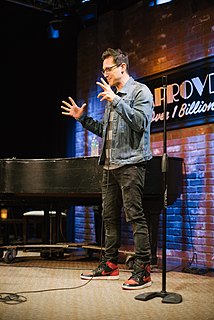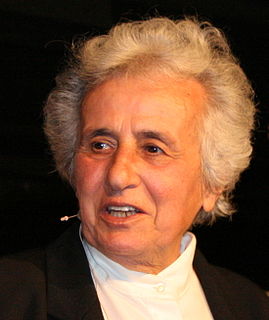A Quote by Vivienne Westwood
My children came out as individuals in their own right. They were not my products. They had their own characters and were very strong-minded. I gave them a lot of freedom when they were still very young. The one thing they got from me is morals. They would never betray anyone. They are really good people.
Related Quotes
I learned a lot about my parents, who were both teachers. I had known that my parents were very strongly in favor of education. I had known that they had an impact on a lot of people, but people came out of the woodwork who have said, "You know, without your father, I would never have gone to college," very successful people. And so I learned how widespread their educational evangelism really was.
I think in the early part of my career, the roles were so disparate that it never gave anybody an opportunity to understand my essence and what I would be good at doing, as opposed to what I would not be good at doing, so these little moments of beautiful things that were happening to me were consistent, but very few and very far between.
I've found that when I was young, all the pretty girls at school got all the dates and went to all the big parties and everything because they were pretty. They never bothered to develop anything. And as they aged, their prettiness faded and they were left as middle-aged women who were very, very unhappy and disappointed. But I can't feel sorry for them because that was their own doing.
There was a commonality in a lot of the private school experiences that I had of children whose lives were not their own. They thought they were their own, but they were essentially gifted this life by their parents. So they were spending money; they were going on trips - I guess, in a way, it is their life, but they didn't earn it.
I was so lucky that I got to meet certain people. It came through Roddy McDowall, who had become a photographer and would do these portraits of celebrities. Then he would get another well-known person to write a thing. He photographed me when I was 15 or 16, and he got Jason Robards to write the thing because he was sort of my mentor. And Roddy would invite me to these dinner parties that were insane. Like, Elizabeth Taylor and Maureen O'Hara and people that were just crazy. I still can't really believe that I met them.
The whole thing was set up very cleverly. The people who were torn from their normal lives and put on the trains may have heard that terrible things were happening in Auschwitz, but even up to the end, they kept on thinking: Perhaps it isn't so bad after all. And then they arrived and the SS told them: "The old people and the sick can take the truck. Anyone who is still young can walk." It took us a while to realize that the ones who were being driven were really being taken to the gas chambers.
To be very fair, it was Ian Marsh and Martyn Ware who started The Human League. They brought Philip Oakey in to sing, primarily because Philip was very tall. So it started out as their vision. I don't think anyone ever thought it would be as big as it became. Music evolves and people were looking for something different. We came out at the right time and were just very lucky.
The other thing that I got back then - the Parker novels have never had much of anything to do with race. There have been a few black characters here and there, but the first batch of books back then, I got a lot of letters from urban black guys in their 20s, 30s, 40s. What were they seeing that they were reacting to? And I think I finally figured it out - at that time, they were guys who felt very excluded from society, that they had been rejected by the greater American world.


